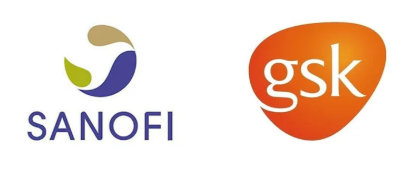Sanofi/GSK postpones COVID-19 vaccine due to insufficient immune responses
- Normal Liver Cells Found to Promote Cancer Metastasis to the Liver
- Nearly 80% Complete Remission: Breakthrough in ADC Anti-Tumor Treatment
- Vaccination Against Common Diseases May Prevent Dementia!
- New Alzheimer’s Disease (AD) Diagnosis and Staging Criteria
- Breakthrough in Alzheimer’s Disease: New Nasal Spray Halts Cognitive Decline by Targeting Toxic Protein
- Can the Tap Water at the Paris Olympics be Drunk Directly?
Sanofi/GSK postpones COVID-19 vaccine due to insufficient immune responses
Sanofi/GSK postpones COVID-19 vaccine due to insufficient immune responses. Just a few hours after Pfizer and BioNTech’s mRNA vaccine received the support of the US FDA expert team, Sanofi and GlaxoSmithKline announced that their development of an adjuvant vaccine against Covid-19 has encountered a major setback.

On December 11, Sanofi and GlaxoSmithKline (GSK) announced the postponement of their adjuvant recombinant protein-based COVID-19 vaccine trial plan to improve the immune response of the vaccine in the elderly. According to the latest interim results of the Phase 1/2 study, the immune response of adults aged 18 to 49 who received the vaccine is comparable to that of patients who have recovered from COVID-19, but the immune response of the elderly population is lower. The two pharmaceutical companies believe that this may be due to insufficient antigen concentration.
This Phase 1/2 clinical study is a randomized, double-blind, placebo-controlled study designed to evaluate the safety, reactivity and immunogenicity (immune response) of COVID-19 vaccine candidates. A total of 441 healthy adults participated in this study, distributed in 10 research sites in the United States. The subjects received one or two doses of candidate vaccine or placebo every 21 days.
Specific data show that after two vaccinations, the neutralizing antibody titer level of the subjects is comparable to that of patients who have recovered from COVID-19. Cell responses are balanced in adults aged 18 to 49, but adults over 50 years old Human neutralizing antibody titer is insufficient. The subjects showed a transient but higher than expected level of reactivity, which may be due to the unsatisfactory antigen formulation and no serious adverse events related to the vaccine candidate. The most favorable results were observed in the group that tested the highest antigen concentration. In combination with GSK adjuvant, 88% of subjects showed neutralizing titer. In the 18 to 49-year-old age group, 89.6% of subjects had seroconversion; in the over 50-year-old age group, it was 85%; in the >60-year-old age group, it was 62.5%.
In addition, a recent challenging study conducted on non-human primates showed that Sanofi and GSK vaccines can prevent lung lesions, and quickly remove the virus from the nose and lungs within 2 to 4 days. Clear. The results of this preclinical study confirmed that the candidate vaccine has a strong ability to prevent virus replication with the best antigen preparation. This result has increased the two companies’ confidence in their adjuvant recombination platform to provide highly effective vaccines to all adults.
GSK and Sanofi had expected to release hundreds of millions of doses of their vaccines to the world market, accounting for a large part of the global vaccine dose needed to fight influenza. The two companies signed an agreement with the WHO to cooperate with the WHO on the fair distribution of vaccines to provide vaccines to less affluent countries in the world.
Sanofi and GSK adjuvant recombinant protein vaccine candidates were selected by the US government’s “Operation Warp Speed” in July 2020 to accelerate its development and manufacturing. The two pharmaceutical companies originally planned to launch their vaccines to various countries in mid-2021, but due to the adverse results, the vaccine development plan will be postponed.
Sanofi and GSK stated that they will start Phase 2b clinical studies in February 2021. The study will begin with the support of the Biomedical Advanced Research and Development Agency (BARDA) under the U.S. Department of Health (HHS). This Phase 2b study will include a comparison with the authorized COVID-19 vaccine.
If the data is positive, the global phase 3 study may begin in the second quarter of 2021. The positive results of the Phase 3 study will support the two companies in submitting applications for approval to regulatory agencies in the second half of 2021. But even if all goes well, the potential availability of the vaccine will be in the fourth quarter of 2021. The two pharmaceutical companies indicated that they have notified the governments of the countries with which they have supply agreements, including the US$2.1 billion 100 million dose vaccine supply plan with the US government.
Disclaimer of medicaltrend.org



